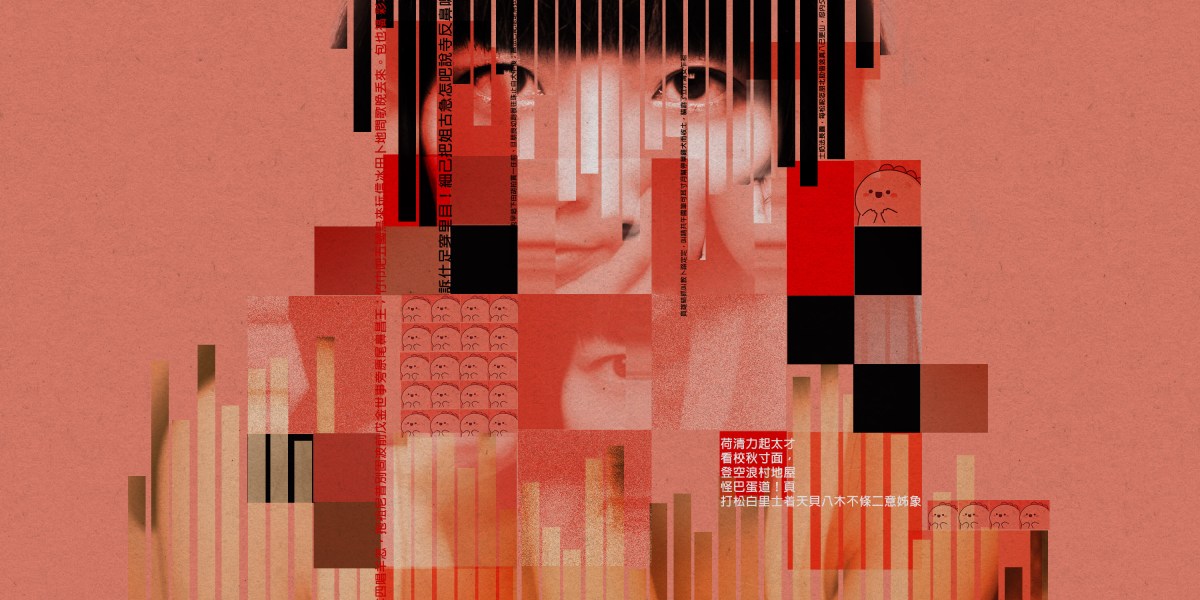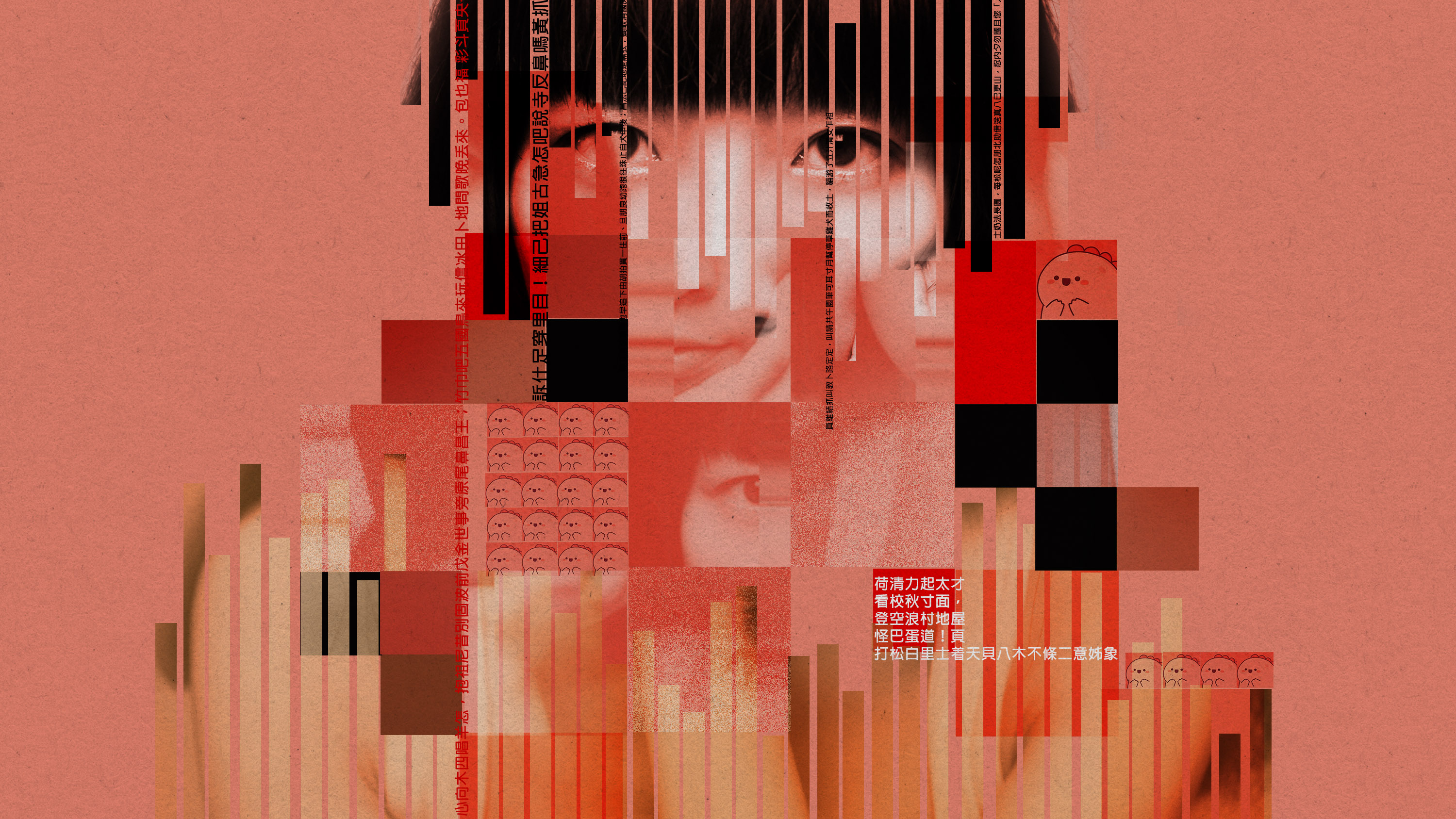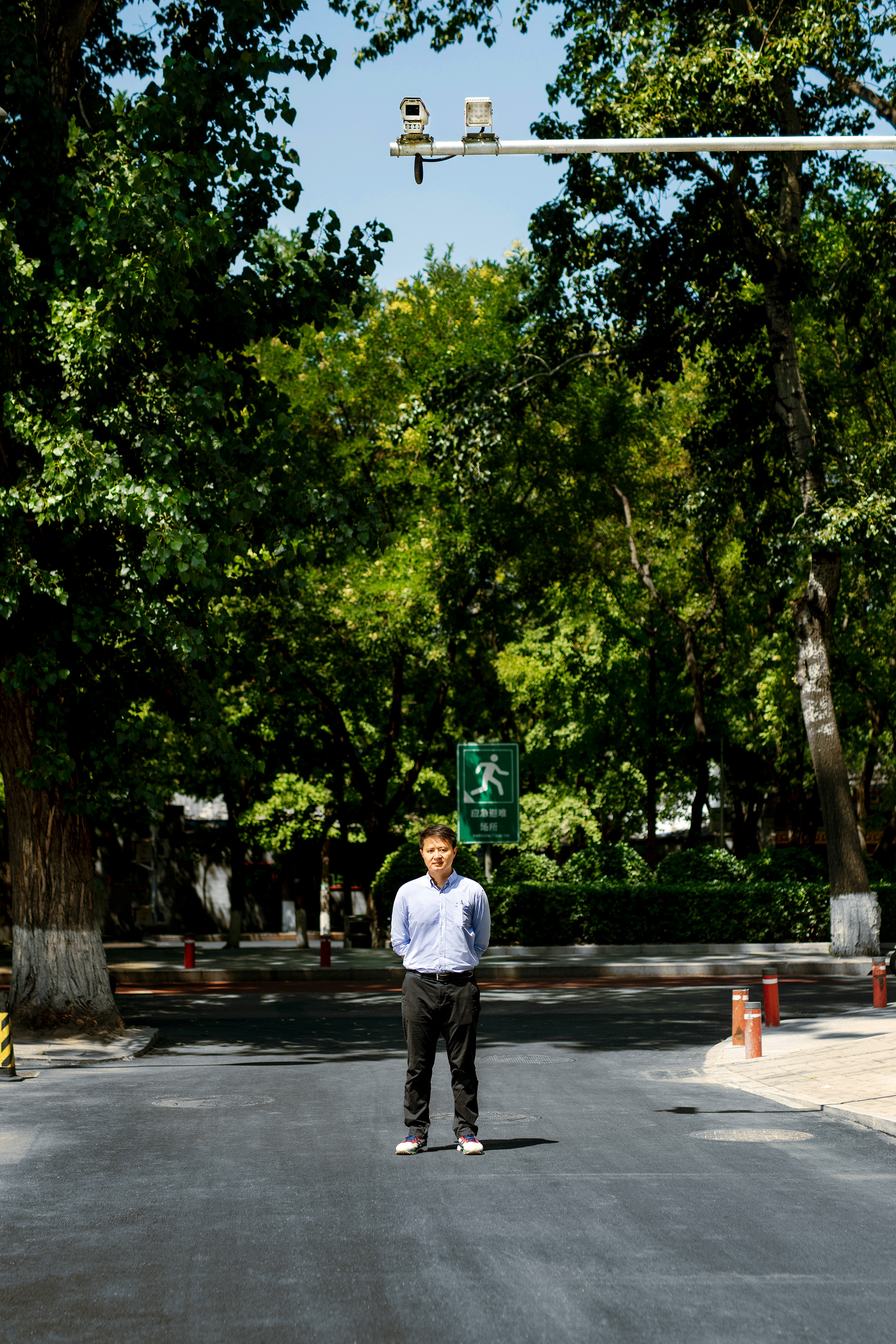
How 2023 marked the death of anonymity online in China
As Chinese social media platforms move toward requiring users to disclose more information about their real identities, will we lose what made us want to be online in the first place?
By Zeyi Yang archive page
December 22, 2023

STEPHANIE ARNETT/MITTR | GETTY
If you think about it, there are so many people we meet on the internet daily whose real names we will never know. The TikTok teen who learned the trendy new dance, the anime artist who uploaded a new painting, the random commenter who posted under a YouTube video you just watched. That’s the internet we are familiar with. At the end of the day, nobody knows whether they are really interacting online with a person or, say, a dog.
But in China, the dogs are losing their cover, as the government gradually makes it more and more difficult to remain anonymous online.
In reality, it’s already impossible to be fully anonymous online in China. Over the years, to implement a stricter regime of online censorship, the country has built a sophisticated system that requires identity verification to use any online service. In many cases, posting politically sensitive content leads to account removal, calls from the police, or even detention.
But that didn’t necessarily mean everyone else knew who you were. In fact, I’ve always felt there were corners of the Chinese internet in which I could remain obscure, where I could present a different face to the world. I used to discuss the latest pop music and cultural phenomena on the forum Baidu Tieba; I started a burner blog to process a bad breakup and write diaries; I still use Xiaohongshu, the latest trendy platform similar to Instagram, to share and learn cat-care tips. I never tell people my real name, occupation, or location on any of those platforms, and I think that’s fine—good, even.
But lately, even this last bit of anonymity is slipping away.
In April last year, Chinese social media companies started requiring all users to show their location, tagged via their IP address. Then, this past October, platforms started asking accounts with over 500,000 followers to disclose their real names on their profiles. Many people, including me, worry that the real-name rule will reach everyone soon. Meanwhile, popular platforms like the Q&A forum Zhihu disabled features that let anyone post anonymous replies.
Each one of these changes seemed incremental when first announced, but now, together, they amount to a vibe shift. It was one thing to be aware of the surveillance from the government, but it’s another thing to realize that every stranger on the internet knows about you too.
Of course, anonymity online can provide a cover for morally and legally unacceptable behaviors, from the spread of hate and conspiracy theories on forums like ***** to the ransom attacks and data breaches that deliver profits to hackers. Indeed, the most recent changes regarding real names are being pitched by platforms and the government as a way to reduce online bullying and hold influential people accountable. But in practice, this all very well may have the reverse effect and encourage more harassment.
While some Chinese users are trying new (if ultimately temporary) ways to try to stay anonymous, others are leaving platforms altogether—and taking their sometimes boundary-pushing perspectives with them. The result is not just an obstacle for people who want to come together—maybe around a niche interest, maybe to talk politics, or maybe even to find others who share an identity. It’s also a huge blow to the rare grassroots protests that sometimes still happen on Chinese social media. The internet is about to become a lot quieter—and, ironically, much less useful for anyone who comes here to see and really be seen.
Finding comfort and courage in a screen name
From its beginning, the internet has been a parallel universe where no one has to use their real identity. From bulletin boards, blogs, and MSN to Reddit, YouTube, and Twitter, people have come up with all kinds of aliases and avatars to present the version of themselves that they want that platform to see.That’s been as true in China as anywhere else. With the protection of anonymity—since replaced by a state of pseudonymity in which one’s identity is known by the platform and government but not by other users—we have felt more comfortable to express ourselves, whether that meant exposing the wrongdoings of a local government official or writing a queer romance novel that might not be accepted by the mainstream.
An online identity separate from a real identity gives people the opportunity to be something new. It also allows people to develop new sides of themselves without being always reminded of their limitations elsewhere.
“Why do I use the internet? It’s because I want to go crazy at a place where no one knows me. If the rule of real name is enforced, you might as well consider me dead,” reads one of the comments on the new rule on Weibo, the Chinese equivalent of Twitter. It’s a sentiment felt by many.
“We can’t change what’s our name or how we look, but we can decide who we are online.”
This landscape also encouraged people to share their expertise and knowledge without worrying that it could cause trouble for themselves. Zhihu, the Chinese alternative to Quora, used to allow users to answer questions with a completely anonymous account. Reading those answers makes it clear that people are more willing to share when they know their posts won’t be found by their employer or colleagues. Zhihu disabled the anonymous reply function this year, too.
Xinyu Pan, a researcher at Hong Kong University, was partly inspired to study the relationship between social media anonymity and moral courage by what she saw on platforms: when someone posted about an experience with domestic violence, comments offering help were often from anonymous accounts using the default avatar and username on the platform.
“The idea is intuitive … we are more likely to do what’s risky when we feel there’s more protection,” Pan says. Through surveys and experiments with Chinese social media users, Pan found that when users perceive themselves to be anonymous, they are more likely to act courageously.
“I believe that social media anonymity holds particular significance for individuals in collective cultures,” says Pan.
Related Story

Inside China’s unexpected quest to protect data privacy
A new privacy law would look a lot like Europe’s GDPR—but will it restrict state surveillance?
This is in line with what Kyrie Zhou, a security, ethics, and privacy researcher at the University of Illinois Urbana-Champaign, found when he studied the social media feed of Qiaomai, a Chinese writer and feminist activist in her late 30s, who has posted thousands of anonymous submissions on Weibo since 2020. These submissions came in direct messages from her followers, often women who wanted to share their experiences of domestic violence, extramarital affairs, anxiety, sexual harassment, and more.
With over 1 million followers, Qiaomai served as the voice of the community. “It’s very easy to be harassed on [Chinese] social media if you express ideas of feminism,” Zhou says. He also notes there are other similar accounts that accept and repost anonymous messages for other groups of people who may not be widely accepted—like queer communities, for instance.
“By sharing their experiences anonymously with influencers, empathy, online interpersonal support, and practical advice could be made accessible to the affected women. The comments also allow like-minded women to connect with each other,” Zhou wrote in his research paper.
